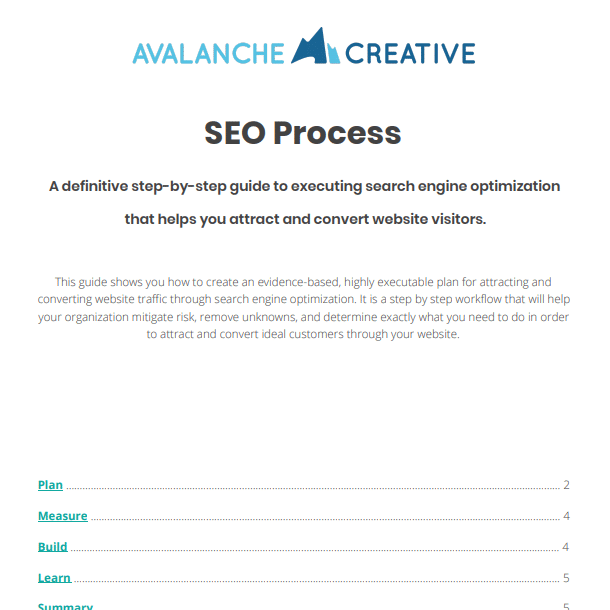And the Emmy goes to…
This week, Deanna talks about keyword grouping and how the Emmys are similar to Search Engine Optimization best practices.

Category: Search Engine Optimization | Tags: SEO, avalanche email, keyword research, keywords, seo analogy
Hi! I’m Deanna, the Content Specialist at Avalanche Creative. I’m filling in for Lance this week.
I’m a sucker for awards shows. The glamor, the drama, the acceptance speeches, the music—it’s spectacular, emphasis on spectacle.
So when the Emmys released their nominations last week, I eagerly scrolled through the final list, looking for favorites, snubs, tight competitions…. The more I read, the more I felt like I was reading a keyword list or sitemap for work (like I was supposed to be doing ).
You see, the Emmys and SEO actually have a lot in common:
They love long-tail keywords.
The Emmys don’t just give out Outstanding Actor or Actress awards. The actual award titles are so specific, they’re almost comical (looking at you, “Outstanding Host for a Reality or Reality-Competition Program”).
Similarly, in SEO, it’s usually best to avoid the trap of competing for the simple terms (“best actor”). Instead, focus on long-tail keywords that are more specific and easier to rank for (“best celebrity cameo on game of thrones”).
They force categorization.
In the days of streaming, the definitions of “movie” and “TV show” are up for debate. Take for example the filmed stage performance of the musical Hamilton on Disney+. The Oscars rejected it as a feature film, but the Emmys accepted it as a pre-recorded variety special.
With SEO, categorization is key, whether you’re:
- Grouping keywords with similar search intent
- Deciding how to group pages on a sitemap or navigation menu
- Creating categories and tags for different types of blog content
- Understanding the different objectives of different types of content (e.g., blog vs. page)

Grouping keywords for a website is a lot like categorizing performances for different Emmy nominations.
They require competitive analysis.
It’s an open secret that television shows submit candidates for Emmy nominations in categories they think they can win—not necessarily those that fit them best.
Look no further than the difference between the “Lead Actor” and “Supporting Actor” categories. In shows with ensemble casts, like The Crown, it’s difficult to determine who’s a lead actor and who is a supporting actor. What makes the actor who plays the literal king of England a supporting actor (Tobias Menzies), while the actor who plays his son (Josh O’Connor) is nominated as a lead?
It comes down to knowing your strengths—and knowing the competition. The same is true of SEO. When creating your website, it’s important to know who your competition is and what strengths you bring to the table.
As a doctor, for example, your website may never beat WebMD, but unless you’re providing diagnostic information for a global audience, they’re not really your competition in the first place. Set your sights on ranking higher than other medical practices in your area first.
First place doesn’t always mean best.
We’ve all seen incredibly talented performers and creators get sidelined during awards season. (Can you believe Parks and Recreation never won a single Emmy?) Similarly, what’s ranking in the first spot on a SERP (or the paid ad that precedes it) may or may not be the highest quality answer to a person’s question.
Awards are great. They make us feel recognized and appreciated for all of our hard work. But at the end of the day, Emmy winners fade from memory, and vanity metrics don’t last forever. What’s most important is creating something meaningful for your audience.
Thanks for reading! Lance will return next week.
Share this article:
The Avalanche Email: Fun. Simple. Educational. No Selling.
Learn Result-focused SEO & Content
Join over 2,272+ others who get one email every Wednesday with simple instructions on how to get more website traffic and leads through SEO and content marketing. (Learn more about the email)
Share this article:





